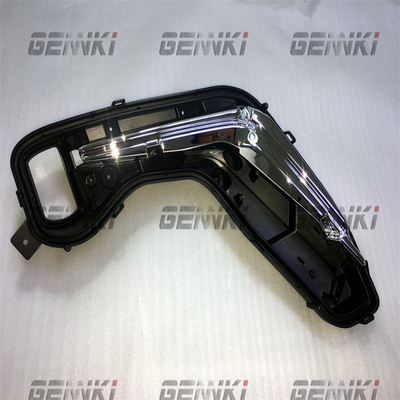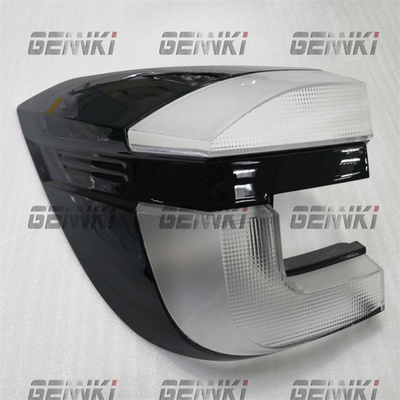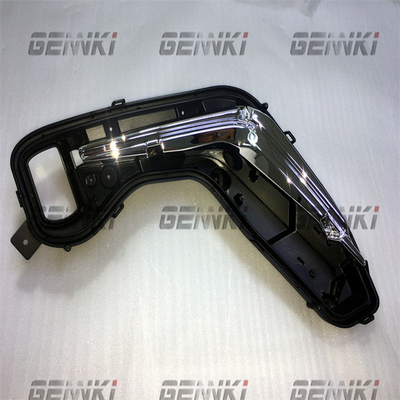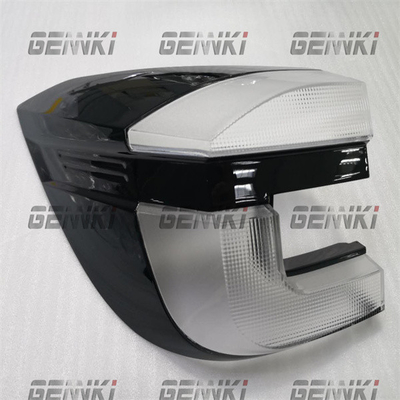SLS 0.05mm Plastic Rapid Prototyping TS 16949 Automotive Lamp Lens
| Test | Optical Test | Application | Automotive Lighting |
|---|---|---|---|
| Material | PMMA Or PC | Process | CNC Milling With Bonding |
| Surface | Mirror Polishing | Design Software | Solidworks, Proe, Catia |
| Design Format | IGES, Prt. Step | Incoterm | FOB |
| High Light | SLS Plastic Rapid Prototyping,0.05mm Plastic Rapid Prototyping,TS 16949 Automotive Lamp Lens |
||
Prototype development is a vital process to create a successful product, especially in such a competitive global market environment
To be competitive, products need to be cheaper, of high quality, and adaptive to customers' changing needs. The quick
turnaround of product cycle time implies that more frequent changes in products are necessary, thus engineers will need to use limited resources to produce a quality product in a short time in such an environment, the successful company will need to produce a series of good value and high-quality products with great consistency, and the secret to success lies in the fine execution of the critical tasks in the product-definition stage.
Many people think that product definition just defines a product, but the actual activities involved are more than that. Product
definition should properly define a product that will work, and this will require all critical product attributes to be considered and,
more importantly, the concept be validated. In other words, product definition may engage the concurrent engineering of
many activities in the early stage from acquiring customer requirements, problem statement, conceptual design, design for assembly (DFA),
design for manufacturing (DFM), and product prototyping to validate the concept, etc. Product prototype is a very critical task
as it serves as the role of the integrator and evaluator of an idea or a concept. A design often needs to be validated by building several
prototypes to produce a quality product. However, prototyping often is very costly and time-consuming, thus it becomes the bottleneck of
the product development process.
Gennki is the reputed manufacturer to provide customers who are in the Automotive light industry with their requirement of twin-color out lens, and inner bezel component with surface metallization to reach the real looks-like product.
Methodology for application of rapid prototyping using subtractive, additive and formative technology based on CAD files. Rapid prototyping technology includes using a digital information chain CAD/CAM/CNC to a level that allows the successful realization of the physical models based on processing of CNC milling, SLA, SLS and urethane casting.
| Brand Name | Gennki Group |
| Description | Rapid Prototype |
| Material | Plastic material |
| Plastic Material | PP, PC,PA6, ABS,POM, PMMA MDF.etc |
| Surface Finish | Polish/Texture/ Chrome plating, metallization .etc |
| Tolerance | +/-0.05mm |
| Place of Origin | China EAST |
![]()
Frequently Asked Question:
Q1. What is required of RFQ?
1) 3D formats with .stp.(preferred) igs,.prt.
2) 2D drawing for tolerance/material/surface finish/test requirement/regulations
3) Quantity (by order, month and Year)
Q2. How do you ensure product quality?
Gennki applies assessment, planning, monitors every single process. Some bullet points:
1) Apply APQP Product development analysis
2) Lay emphasis on prevention and planning
3) Quality Criteria (ISO and TS 16949)
Q3. How do you ensure on-time delivery?
1) Detailed planning, details per hour/person/machine number/stakeholder…
2) Main material is managed efficiently
3) Daily progress meetings, a recovery plan will be reviewed by the management team once any key chain is a delayed.
4) If a delay happens on delivery in the course, extras hours will help to turn it on schedule
Q4. How can you if we don’t have the CAD data?
Gennki is able to generate the CAD for your review and approval in terms of your 2D sketch, or certain samples.
Q5. Can we test the plastic injection mold?
You are always welcome to a company with us to try the molds in place in person. The testing video can be supplied for your checking with your absence.
Q6. How long does an injection mold last?
Generally, a plastic injection mold could complete anywhere between 100,00 to 1 million (or sometimes somewhat more than a million) cycles in its lifetime, so it's subject to customer’s expectancy.
Q7. How about your guarantee or aftersales?
The worn-easily spare parts will be freely provided during the warranty period. Gennki’s strategic associated American mold shop will assist you to handle the modification change if needed after the delivery.
Q8. How Can I visit your company from abroad?
Easy to find, you may take an international flight either land at PVG Airport or Hongqiao Airport from your workplace. The nearby high-speed train station to Hongqiao Airport will facilitate your trip to elsewhere in China.





